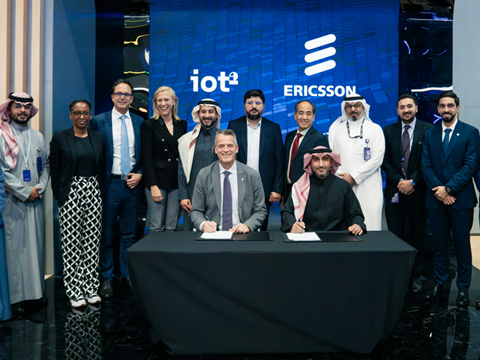
Recently launched in Saudi Arabia by Ericsson and iot squared, the Ericsson Connected Recycling platform intends to help Alshaya Group divert over 50% of its waste from landfills, track it in real time, and integrate recycled content back into its packaging.
Ericsson has worked alongside knowledge partners like Tetra Pak and customers in several markets to develop the ‘best-in-class’ platform. Customers are encouraged to use it for trading and tracing circular material flows, automating advanced waste flow and environmental impact reporting, and the ‘effortless’ monetization of waste.
Now iot squared is serving as the local partner for the platform in the Kingdom of Saudi Arabia. It is responsible for contracting Alshaya Group, among other enterprises.
Alshaya plans to keep over half its waste out of landfill and integrate more recycled content into its packaging, working alongside Tetra Pak, Obeikan Paper Industries, and other partners.
“Leveraging the Ericsson Connected Recycling, in collaboration with iot squared, supports our commitment to operate responsibly and sustainably,” says Seneca Cottom, Head of Sustainability at Alshaya Group. “Digital transparency of waste flows helps us understand our full waste footprint, and with the marketplace functionality we can easily repurpose it and direct waste material in circular flows instead of landfills.
“We are especially pleased to launch the platform in KSA, an important market for our business and one that will see us invest and grow our brands in the Kingdom, especially as we look towards the opening of The Avenues – Riyadh in late 2026, and in Khobar in 2027.”
“As the solution provider of the Ericsson Connected Recycling platform in the Kingdom of Saudi Arabia, we are committed to supporting enterprises like Alshaya Group implement effective waste management solutions,” says Othman Aldahash, CEO of iot squared. “This initiative is a testament to the power of technology in driving sustainability and creating value for businesses.”
Marcelo Piva, sustainability director-Middle East & Africa at Tetra Pak, comments: “We are delighted that Tetra Pak is joining this partnership as the knowledge partner and will support Ericsson and iot squared leverage the industry benchmark established in the Middle East through Tetra Pak’s implementation of the first-of-its- kind recycling line for carton packages in the Kingdom of Saudi Arabia.
“We are quite positive that this partnership will create more opportunities for collaboration amongst technology provides and food and beverage companies, as well as create further drive towards circularity in the region.”
Håkan Cervell, vice president and head of Ericsson Saudi Arabia at Ericsson Middle East and Africa, adds: “We are glad to launch the Ericsson Connected Recycling platform in the Kingdom of Saudi Arabia, in partnership with iot squared, and in collaboration with Alshaya Group. It showcases how global technology can support transformations in the industry, and we are excited to see the positive impact it will have on the environment and the retail sector in the Kingdom.”
The news comes after SABIC, Napco National, and FONTE worked together to launch ‘fully recycled’ post-consumer polyethylene bread bags in Saudi Arabia. Announced last April, the partnership utilized chemical recycling to produce 100% mass-balanced certified recycled feedstock from mixed post-consumer plastic streams, then turn it into flexible bags in pursuit of a circular economy.
More recent efforts to facilitate circularity for plastics around the world include Saahas Zero Waste adopting CircularNet, Google’s open-source machine learning model, in hopes of helping responsibly manage over 500 tonnes of India’s waste every day by 2026; and South Korea’s progress in collection and sorting, recyclate quality policies, firm EPR rules, and other areas of circularity, as we discussed in a recent report.
If you liked this story, you might also enjoy:
Reuse vs. single use – which is better for the environment?
Sustainable Innovation Report 2025: Current trends and future priorities
What can the world learn from South Korea’s world-leading performance in plastics circularity?
Could global action eliminate plastic pollution by 2040?














No comments yet